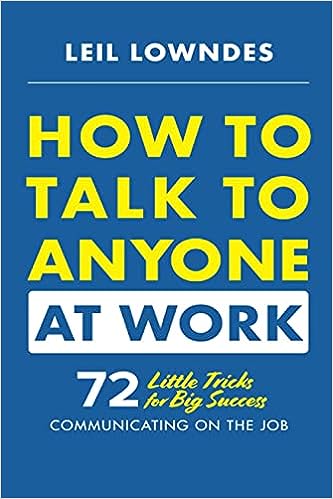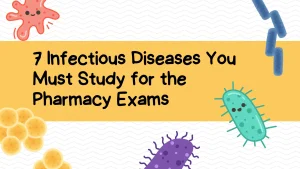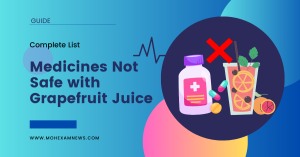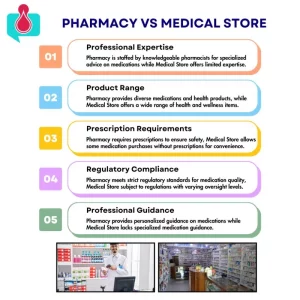5 Toxic Workplace Behaviors That Don’t Lead To Increased Productivity Or Profit
Toxic workplace behaviours can harm employee morale, productivity, and ultimately, a company’s profitability.
Pharmacists can face toxic behaviour at work, like bullying, micromanagement, and unfair treatment. This can lead to stress and burnout. It’s important to document incidents, seek support, and set boundaries. Addressing toxic behaviour can create a healthier work environment for everyone.
A pharmacist is constantly criticized for minor mistakes, even when corrected quickly and have no significant impact. The pharmacy supervisor publicly shames the pharmacist in front of colleagues, making them feel humiliated and incompetent. This kind of bullying can create a hostile work environment and negatively impact the pharmacist’s mental health.
5 Toxic Behaviours at Work
Here are five such behaviours that do not lead to increased productivity or profit:
Bullying and Harassment
Workplace bullying or harassment creates a hostile environment that makes employees feel unsafe and stressed. This behaviour can lead to increased turnover, absenteeism, and decreased productivity. Additionally, it can result in legal liabilities for the company, which can be costly.
Micromanagement
Micromanaging employees not only undermines their confidence and autonomy but also wastes the manager’s time. When employees are constantly monitored and not trusted to do their jobs, they become less engaged and creative, leading to lower productivity.
Lack of Communication
Poor communication within a team or organization can lead to misunderstandings, conflicts, and missed opportunities. When employees are not informed about company goals, changes, or their performance, they may become disengaged and less productive.
Unrealistic Expectations
Setting unattainable goals or constantly pushing employees to work long hours without regard for work-life balance can lead to burnout. Burnout decreases productivity, increases turnover, and can harm employees’ mental and physical health.
Favouritism and Nepotism
When promotions and rewards are based on personal relationships rather than merit and performance, it erodes trust among employees. Those who perceive unfair treatment are likely to become disengaged and less motivated to contribute their best efforts.
For Pharmacists, have a look at these tips to avoid stress and get a job quickly.
Toxic behaviours may not only harm individual employees but can also create a toxic work culture that affects the entire organization. Companies that prioritize a healthy work environment, open communication, fairness, and employee well-being are more likely to see increased productivity and profit in the long run, as employees are happier, more engaged, and motivated to contribute to the company’s success.
How to make a Toxic workplace a better place for yourselves!

If you’re facing a toxic work environment characterized by bullying, micromanagement, poor communication, unrealistic expectations, or favoritism, here are some solutions to consider:
1. Self-Care and Well-being: Prioritize your mental and physical health. Engage in activities outside of work that help you relax and recharge. This might include exercise, meditation, hobbies, or spending time with loved ones.
2. Seek Support: Talk to trusted friends, family members, or a therapist about your experiences at work. Sharing your feelings and experiences with someone who listens without judgment can provide emotional relief and perspective.
3. Document Incidents: Keep a record of specific instances of toxic behaviour, including dates, times, people involved, and what was said or done. This documentation can be valuable if you decide to report the issues to HR or higher management.
4. Set Boundaries: If possible, establish boundaries to protect your time and well-being. This might involve politely but firmly declining excessive work demands or setting limits on how much you’re willing to tolerate in terms of mistreatment.
5. Communication Skills: Improve your communication skills to address conflicts and misunderstandings constructively. Sometimes, open and honest communication can help resolve issues before they escalate.
6. Seek Guidance from HR: If you feel safe doing so, consider discussing your concerns with your company’s HR department. They may be able to offer guidance, mediate conflicts, or address the issue with the individuals involved.
7. Explore Other Opportunities: Begin exploring alternative job opportunities that align with your skills and career goals. A healthier work environment might be the best long-term solution for your well-being.
HELP IS HERE!
Educate yourself more about the situations for more in-depth guidance on how to navigate a toxic work environment.
I recommend reading the book How to Talk to Anyone at Work with 72 Little Tricks

This book provides valuable insights, strategies, and actionable advice to help you survive and thrive in challenging work environments.
It’s a valuable resource for anyone looking to reclaim their peace and well-being in the face of workplace toxicity.






